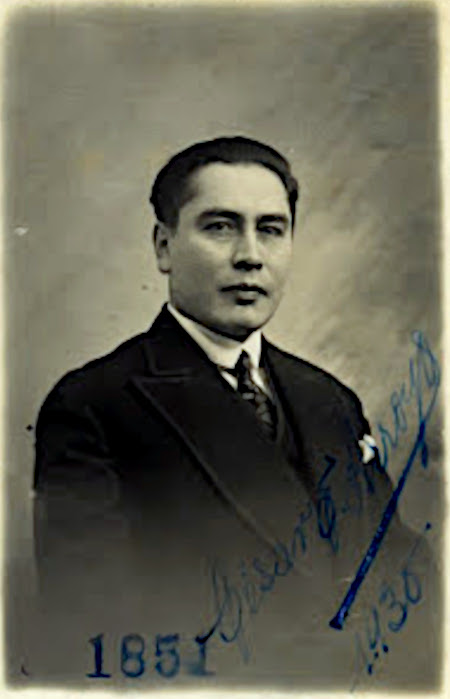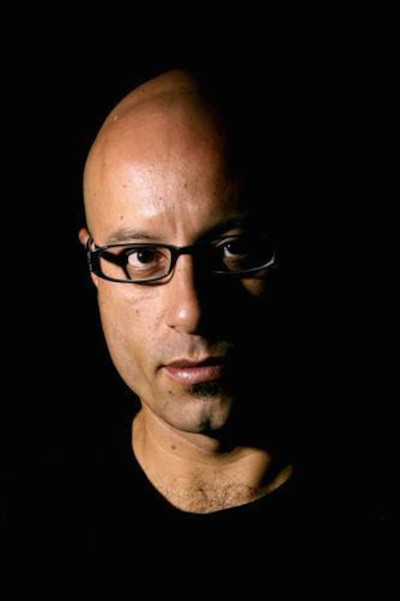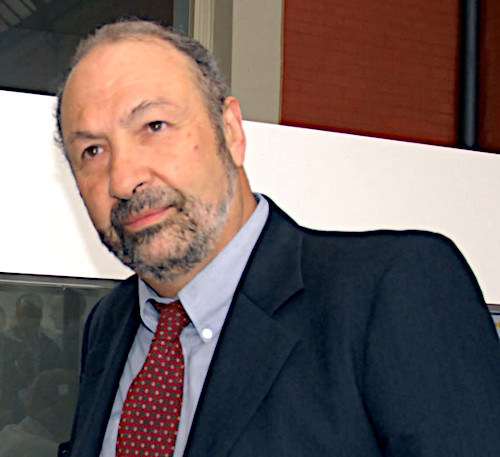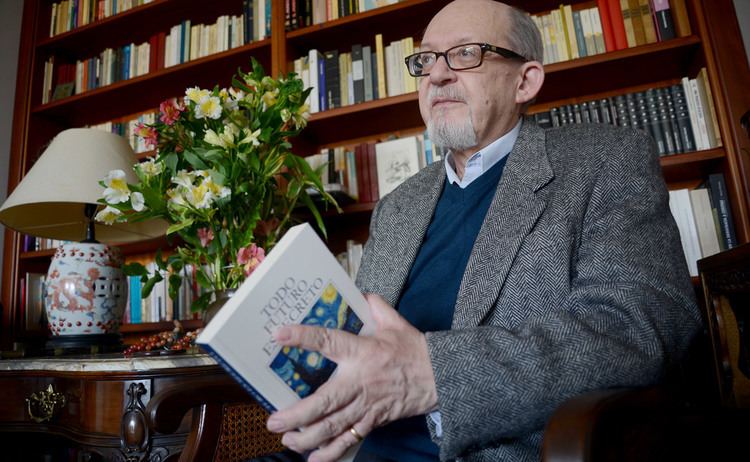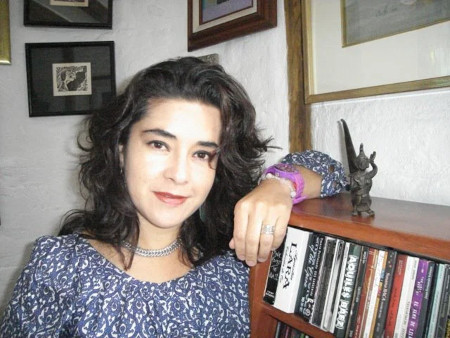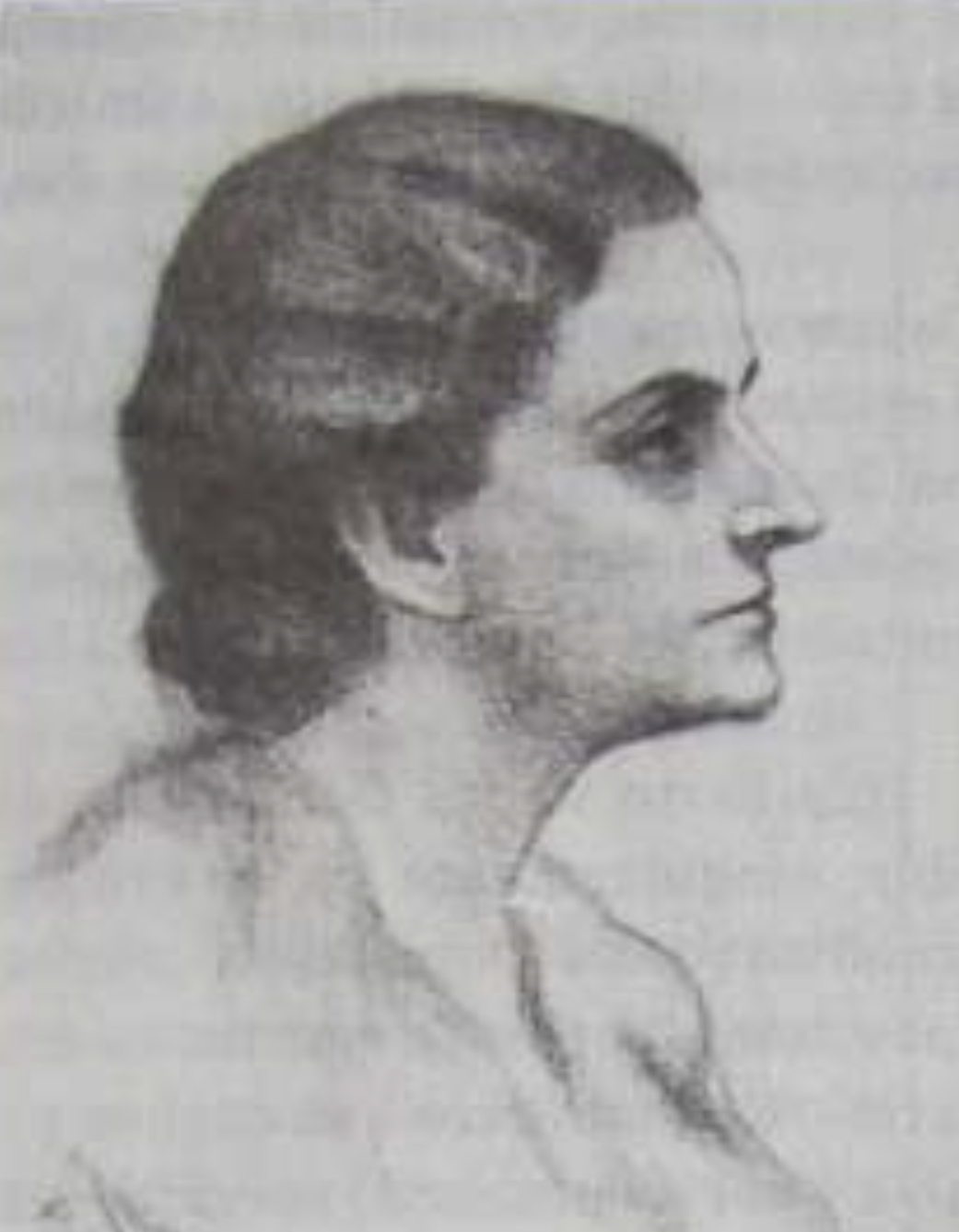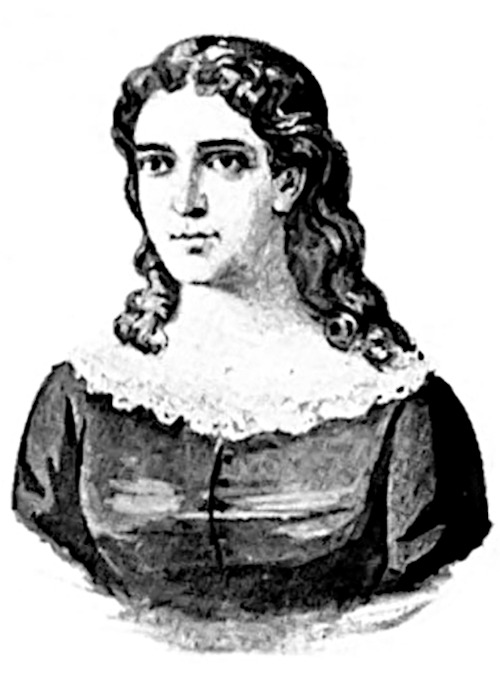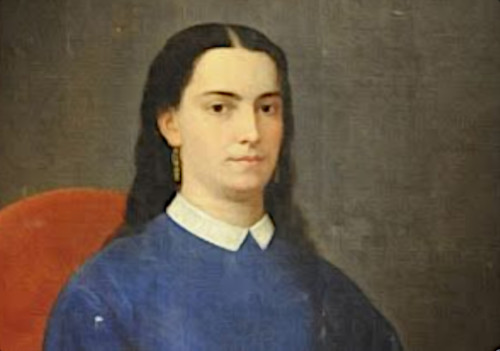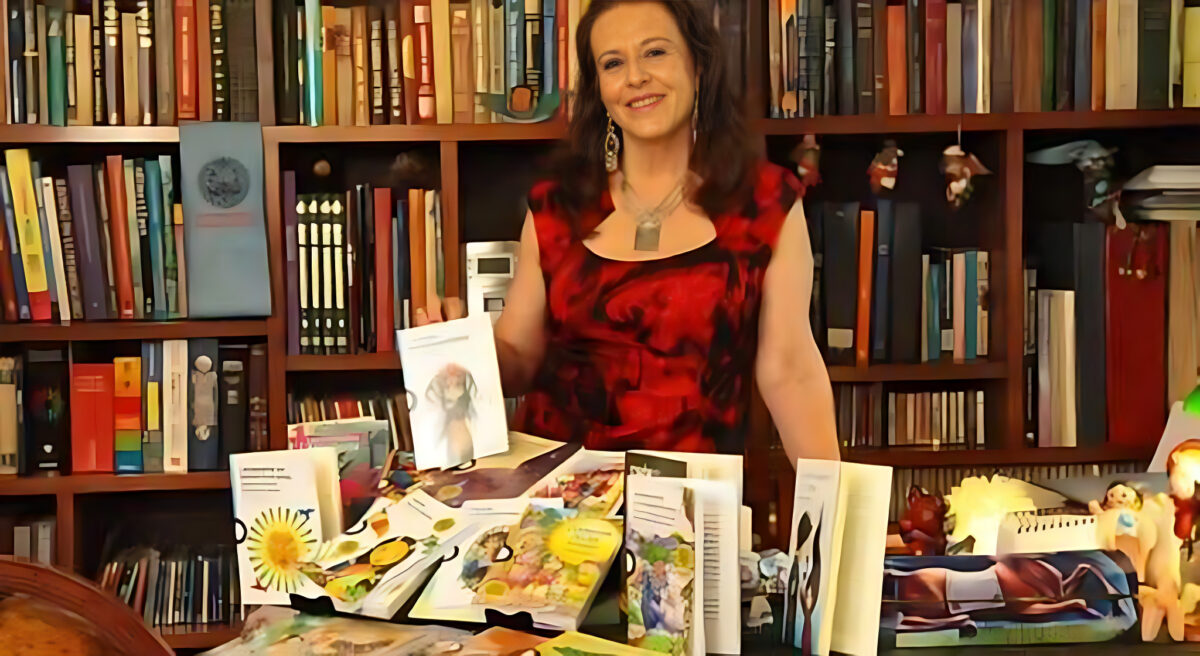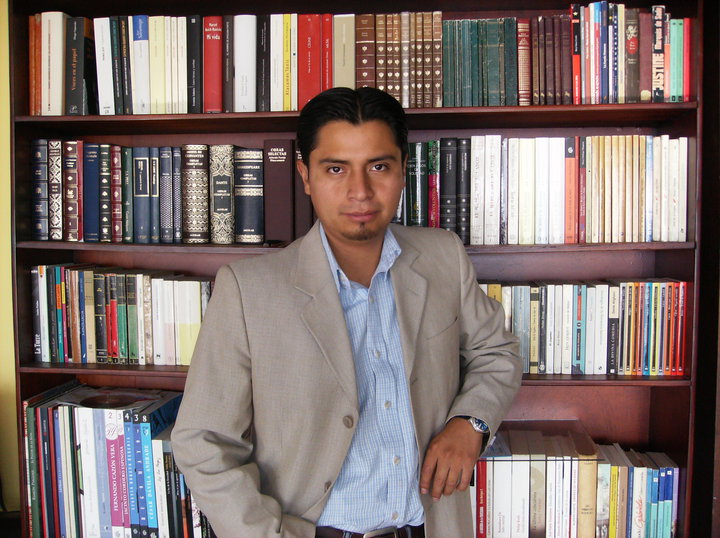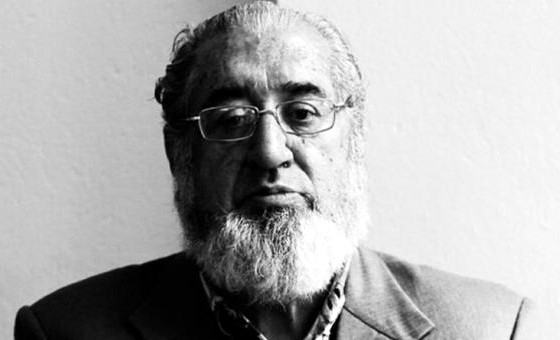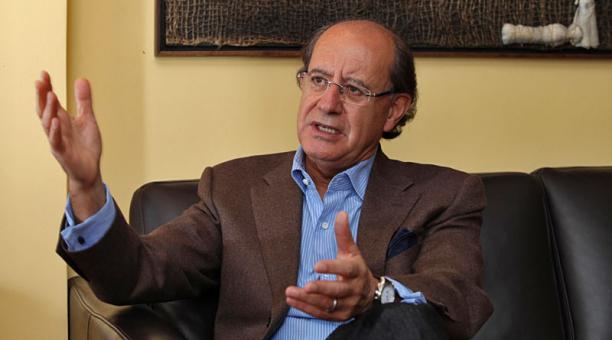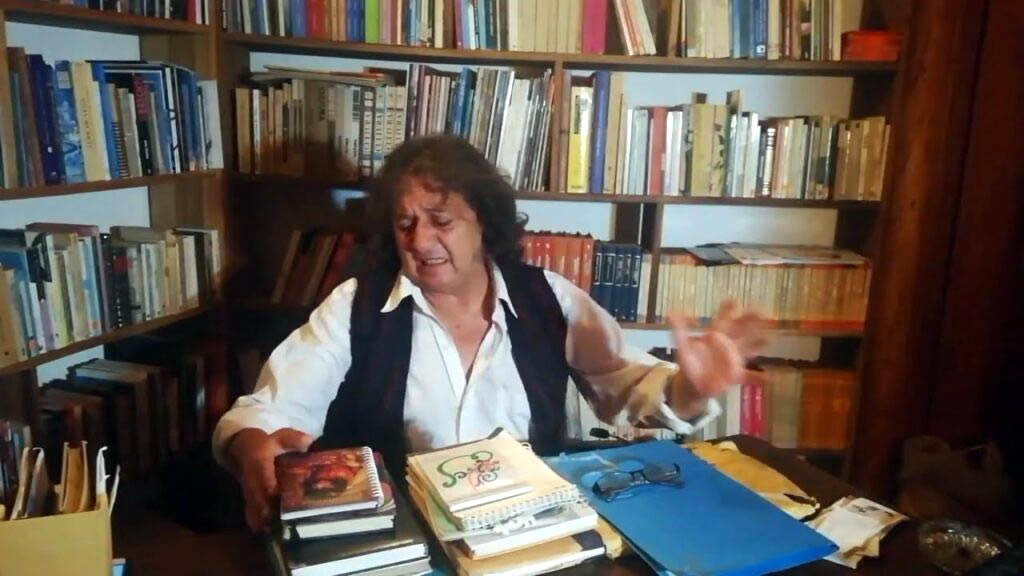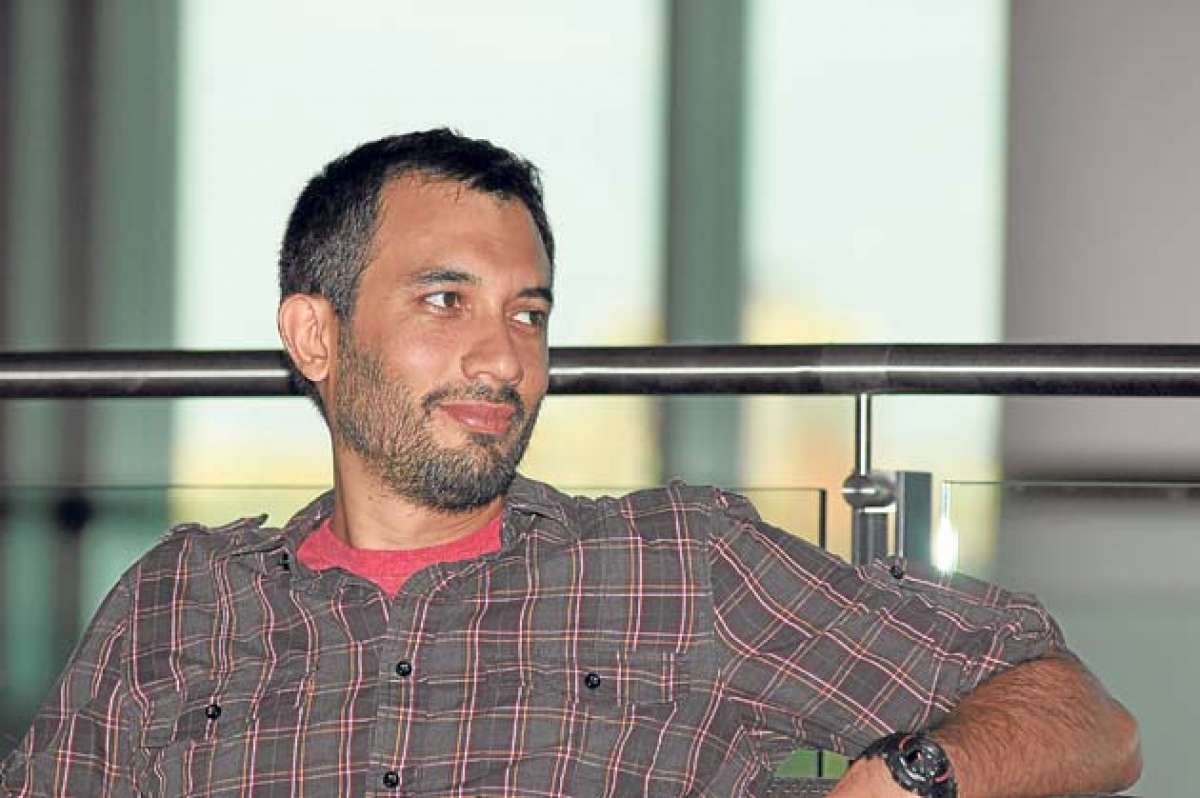César E. Arroyo (Quito, 1887 – Cádiz, 1937) was an Ecuadorian poet, novelist, journalist, playwright and diplomat. He was Ecuador’s Consul in Vigo from 1912 to 1916, and Ecuador’s Consul in Madrid from 1917 to 1919. He later served as Consul in Santander and Cadiz. He co-founded the Madrid-based magazine Cervantes (1913-1921) with the Spanish poet Francisco Villaespesa.
Continue reading “César E. Arroyo”Category: Writers from Quito
Ney Yépez Cortés
Ney Yépez Cortés (Quito, 1968) is an Ecuadorian novelist, poet, journalist, songwriter, screenwriter, lecturer, and teacher of Tai Chi, Reiki and Qi Gong. He is best known as a science fiction, adventure and mystery writer. He published his first poems in 1990 in Ixo Facto, a surrealist literary magazine. He has since written 5 novels and 3 books of short stories. In 2001 he published his first book of short stories entitled “Mundos abiertos,” which was critically acclaimed. In 2006 he published his first novel “Las sombras de la Casa Mitre,” and 2009 he published its sequel “El árbol de las brujas.” His latest novel “El secreto de la reliquia sagrada,” a work of adventure and mystery, was published in 2019.
Continue reading “Ney Yépez Cortés”Javier Vásconez
Javier Vásconez (Quito, 1966) is an Ecuadorian novelist, short story writer, and editor. In 1989, his collection of short tales “El hombre de la mirada oblicua” [The Man with the Sideways Glance] won the Joaquín Gallegos Lara Prize, and in 1982 his book of short stories “Ciudad lejana” [A Distant City] was a finalist for the Casa de las Américas Prize (Cuba). His stories have been translated into other languages, including English, French, German, Swiss, Hebrew, Bulgarian, and Greek. In 2022, he was awarded the Eugenio Espejo Prize, which is Ecuador’s highest national literary award.
Continue reading “Javier Vásconez”Juan Andrade Heymann
Juan Andrade Heymann (Quito, December 18, 1945) is an Ecuadorian writer, novelist, short story writer, poet, and playwright. His short story El lagarto en la mano (1965) and his novel Las tertulias de San Li Tun (1993) expressed social change.
Continue reading “Juan Andrade Heymann”Aleyda Quevedo Rojas
Aleyda Quevedo Rojas (Quito, 1972) is an Ecuadorian poet and journalist. She is regarded as an important voice in contemporary Latin American poetry. Among her best-known works are the poems “Algunas rosas verdes” (1996), for which she won that year’s Jorge Carrera Andrade Award, and “Soy mi cuerpo” (2006), in which she uses the human figure as an escape from the fears and anguish provoked by death. The latter book and another one, “Jardín de dagas” (2013), were translated into French. In 2017, the House of Ecuadorian Culture published the book “Cierta manera de la luz sobre el cuerpo,” a compilation of her poems up to that point.
Continue reading “Aleyda Quevedo Rojas“Hipatia Cárdenas de Bustamante
Hipatia Cárdenas de Bustamante, also known as Aspacia (Quito, March 23, 1889 – Quito, February 9, 1972) was an Ecuadorian writer, politician, suffragist, and feminist. She was one of the pioneering defenders of women’s suffrage in Ecuador. In 1929, she became the first female Councilor of State, and in 1932, she became the first female candidate for the presidency. She fought for respect in the women’s right to vote in Ecuador after its approval in 1929 and the appearance of groups that were against it. In 1943 she published her book “Oro, rojo y azul,” and wrote for the newspapers El Día, El Comercio, and the magazine América.
Continue reading “Hipatia Cárdenas de Bustamante”Dolores Veintimilla
Ignacia María de los Dolores Veintimilla de Galindo (Quito, July 12, 1829 – Cuenca, May 23, 1857) was an Ecuadorian poet and essayist known for her contributions to 19th-century Romanticism and early feminist thought. Raised in an aristocratic family, she received a formal education and later married Colombian physician Sixto Galindo. Her poetry, marked by themes of sorrow, unrequited love, and social justice, reflected her personal struggles and progressive views, including her opposition to the death penalty. Isolated and vilified for her outspokenness, Veintimilla tragically took her own life at the age of 27.
Continue reading “Dolores Veintimilla”Manuela de la Santa Cruz y Espejo
Manuela de la Santa Cruz y Espejo, also known by her pseudonym Erophilia in her articles (Quito, December 20, 1753 – Quito, 1829) was an Ecuadorian journalist, nurse, feminist, and revolutionary. She was the sister of Eugenio Espejo, with whom she discussed and shared Enlightenment and revolutionary, pro-revolutionary thought and ideas.
Edna Iturralde
Edna Iturralde De Howitt (Quito, May 10, 1948) is Ecuador’s most important and prolific authors of children and young adult’s literature. She has written 62 books. She has won various prizes and nominations within and outside her country. Among the most important of these are the Dario Guevara Mavorga National Prize for Children’s Literature in Ecuador in 2001, the Skipping Stones Award in the United States in 2002 and 2005, and the Mention of Honor of the Municipality of Quito in 2003 and 2004. She has been nominated twice, in 2012 and 2013, for the Astrid Lindgren Memorial Award (ALMA). Her work was selected by the SEP within the competition of the Mexican Ministry of Education in 2003 and 2005. In 2005, two of her books were nominated for the Ecuadorian Honor List of IBBY (International Board of Books for the Young). She was a 2014 International Latino Book Awards Finalist. She is the president of the Ecuadorian Academy of Children and Juvenile Literature, which is associated with the Latin American Academy of Children and Juvenile Literature. Several of her books has been translated into English.
Continue reading “Edna Iturralde”Edwin Alcarás
Edwin Marcelo Alcarás Panchi (Quito, 1981) is an Ecuadorian professor, cultural journalist and fiction writer. He is the author of the book of short stories La tierra prometida (2012), which in 2010 won third place in the First Literary Prize of the Provincial Council of Pichincha. In 2011, he decided to quit writing for newspapers, and started an academic career. He has completed three Master’s Degree programs. 1. Hispanic Philology (Universidad Nacional de Educación a Distancia, UNED, Madrid, 2013); 2. Latin American Literature (PUCE, 2016), and Philosophy and Social Thought (FLACSO, 2019). He is currently a professor of Spanish as a foreign language at the Pontifical Catholic University of Ecuador (PUCE), and as a visiting assistant professor he has taught Spanish as a Second Language, Latin American Literature, and Creative Writing at Earlham College in Richmond, Indiana.
Continue reading “Edwin Alcarás”Alejandro Moreano
Alejandro Moreano (Quito, 1945) is an Ecuadorian writer, essayist, university professor, novelist, literary critic, and political scientist. On four occasions he was the director of the school of sociology at the Central University of Ecuador, and has been a professor at the Pontifical Catholic University of Ecuador, and is currently a visiting professor at the Simon Bolivar Andean University (Ecuador). His latest novel El crímen del tarot (2020), which Moreano has described as “a novel within a novel,” has to do with politics, theater, love and eroticism.
Continue reading “Alejandro Moreano”Jaime Marchán
Jaime Marchán Romero (Quito, March 15, 1947) is an Ecuadorian writer, diplomat, and academic. He holds degrees in Political and Social Sciences and in Jurisprudence from the Pontificia Universidad Católica del Ecuador (PUCE). As a member of the post-boom generation of Latin American writers, his literary works are known for their stylistic purity and complex character psychology. Marchán has published several notable works, including La otra vestidura (1991) and Volcán de niebla (2012), which won the Joaquín Gallegos Lara National Fiction Prize in 2013. In addition to his literary career, he has held significant diplomatic roles, representing Ecuador in multiple countries and serving as Vice Minister of Foreign Affairs and ambassador. He is also a full member of the Academia Ecuatoriana de la Lengua, occupying seat “Ñ” since 2013.
Continue reading “Jaime Marchán”Patricio Vallejo Aristizábal
Patricio Vallejo Aristizábal (Quito, 1964) is an Ecuadorian actor, director, dramaturg, playwright, and professor. In 2013, his play Caminando sobre arenas movedizas (2012) won the Joaquín Gallegos Lara Prize. He has written books on theater, such as Teatro y vida cotidiana (2003), El teatro político y la figura del Inca (2003), and La Niebla Y La Montaña: Tratado Sobre El Teatro Ecuatoriano Desde Sus Orígenes (2011). In 2001, the House of Ecuadorian Culture bestowed on Vallejo the “National Theatrical Merit Award.”
Continue reading “Patricio Vallejo Aristizábal”Esteban Mayorga
Esteban Mayorga (Quito, 1977) is an Ecuadorian writer. He received his PhD in Hispanic Studies from Boston College. He is on the faculty of the Department of Modern and Classical Languages at Niagara University, New York, and Universidad San Francisco de Quito, Ecuador. His areas of research include the Latin American novel, travel writing, contemporary transatlantic fiction, and comparative literature. Mayorga has written a variety of fiction works, including the novella Vita Frunis (2010, winner of the Pablo Palacio Prize), and the novels Moscow, Idaho (2015), Cuarenta (2018), and Faribole (2018). He also wrote the short story books Un cuento violento (2007, winner of the Joaquín Gallegos Lara Prize) and Musculosamente (2012). Every other year he teaches a course on Latin American travel literature and takes students to the Galápagos Islands and the jungle of Ecuador.
Continue reading “Esteban Mayorga”Andrés Villalba
Andrés Villalba Becdach is a writer and poet. He was born in Quito in 1981. He studied Social Communication in Quito, journalism in Los Angeles and Latin American literature at Sapienza University of Rome. His books include: Cuaderno Zero (2010), Luigi Stornaiolo: el arte de la digresión (honorable mention in the José Peralta National Journalism Prize, 2010), Obscenidad del vencido (2010), Menos que cero (2011), Muñones (2011), De los acorralados es el reino (2014), Soterramiento (2014), No mueras joven, todavía queda a gente a quien decepcionar (winner of the Jorge Carrera Andrade National Poetry Prize, 2015), Una natural tendencia a la desintegración (fragment, 2017; complete edition, 2018). He also put together the anthology of Ecuadorian poetry Caballo sea la noche.
Continue reading “Andrés Villalba”